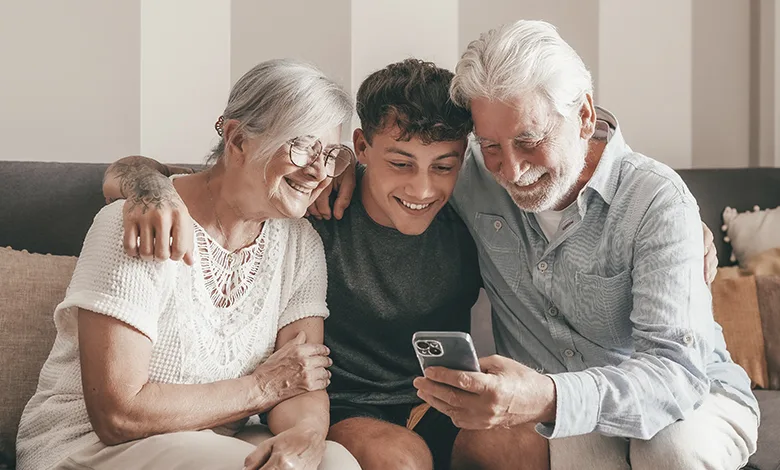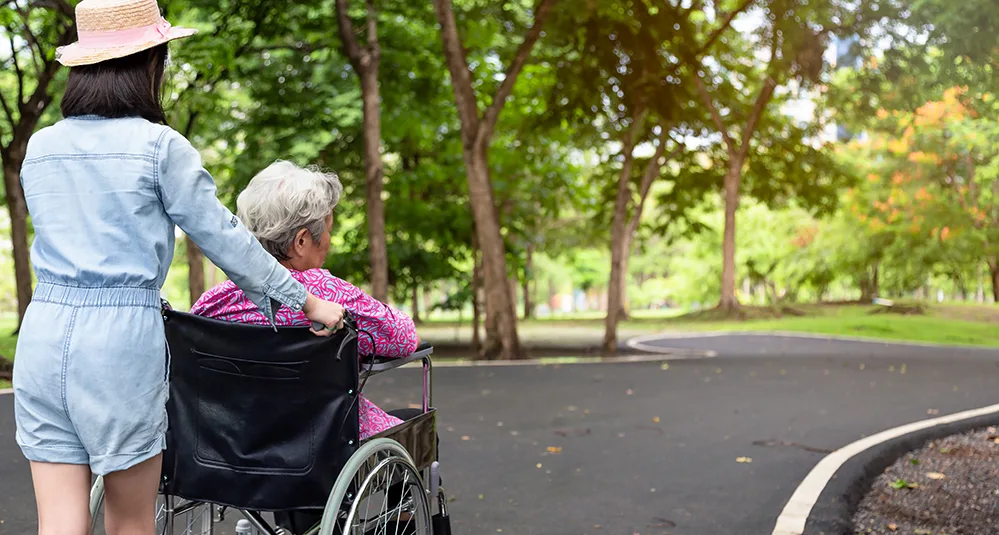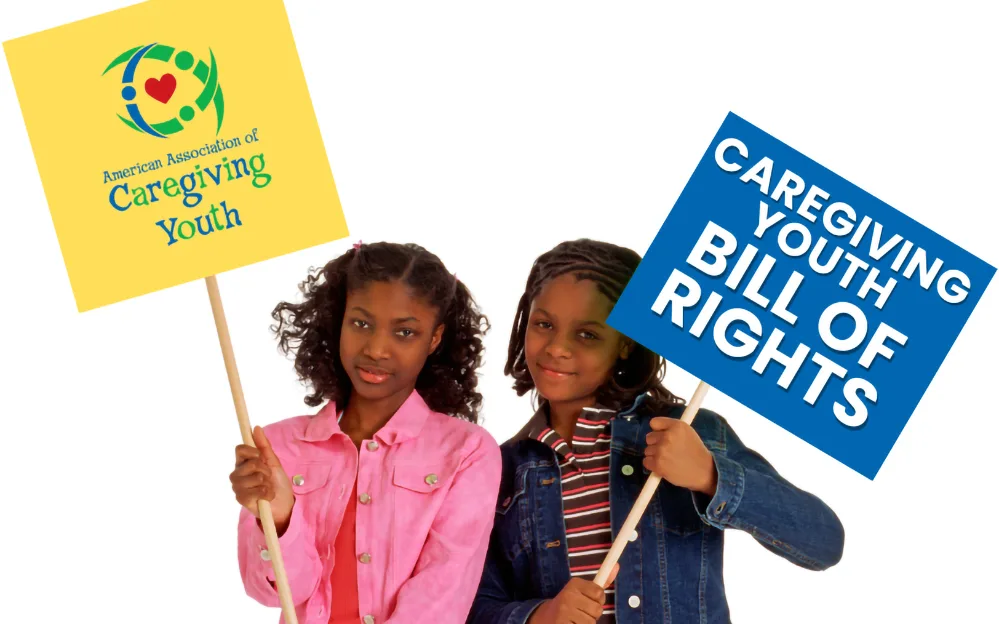
Across the U.S., more grandparents are stepping into a role they never expected—becoming full-time parents all over again.
According to Generations United, more than 2.4 million grandparents are raising grandchildren without a parent present—often without formal legal custody, which can make accessing education, health care, and financial assistance far more difficult.
When Grandparents Become Parents Again
When you think of a grandparent, you might picture someone offering cookies, hugs, and weekend visits. However, for more and more older adults, grandparenting now means midnight feedings, school drop-offs, and dealing with the emotional fallout of a family in crisis.
If you’re not currently raising grandchildren, you may still face this increasingly common family situation in the future.
The U.S. Census Bureau has also documented a significant rise in the number of children living in a grandparent’s home over the past decade. Why? Any number of reasons: the death of a parent, addiction, incarceration, mental illness, divorce, joblessness, military service, or overseas assignments.
Yet many are also forced to navigate unfamiliar systems—such as applying for school enrollment or Medicaid coverage—without the legal authority that biological parents automatically have.
“Many grandparents find unexpected rewards in their new roles—offering their grandchildren love, structure, and stability.”
Why It’s Happening More Often
These dramatic life changes often leave grandparents as the only safe and stable option for raising a child. While stepping in is often an act of deep love and commitment, it can also be emotionally, physically, and financially overwhelming.
Still, many grandparents find unexpected rewards in their new roles. Providing grandchildren with structure and security during such a vulnerable time not only supports their development but may also shape how they return that care later in life.
Research shows that children in grandparent-led households often experience greater emotional stability, fewer behavioral problems, and improved placement stability compared to children in non-relative foster care—though the demands on aging caregivers remain significant.

Caring for Children—and Later, Being Cared For
Care often runs both ways. While grandparents support young children through trauma and transition, some of those same children may grow into caregivers themselves.
Researchers at the Bloomberg School of Public Health have highlighted the growing reality of “caregiving youth”—children and teens who assist family members with chronic illness, disabilities, or aging-related needs. These children, often between the ages of 8 and 18, juggle school responsibilities while managing caregiving duties well beyond their years.
More than 5.4 million young people in the U.S. serve as caregivers, according to estimates from the American Association of Caregiving Youth (AACY)—yet many go unrecognized by schools and support systems.
When children must care for aging grandparents, the emotional toll is immense. If Grandpa is hospitalized and Grandma must step away to manage his care, young caregivers may struggle to keep up with school, miss out on social time, or even consider dropping out entirely.
“Some grandchildren are quietly stepping into caregiving roles—long before they’re grown.”
When the Roles Reverse: Children as Caregivers
These “reversed roles” highlight how critical it is for grandparents to plan ahead—not just for their grandchildren’s current care, but for their own potential care needs down the line.
One invaluable resource is the American Association of Caregiving Youth (AACY), a nonprofit based in Boca Raton, Florida. AACY supports and advocates for youth aged 8 to 18 who care for chronically ill, injured, elderly, or disabled family members.
I encourage you to explore the AACY’s “Caregiving Youth Bill of Rights,” which outlines the rights and protections young caregivers deserve. You can find the full list and additional resources at: aacy.org/who-we-are/caregiving-youth-bill-of-rights
Also worth exploring: Generations United’s “Grandfamilies & Kinship Support Network,” which offers legal guidance and downloadable resources for grandparents raising children in all 50 states.
Also worth exploring: Generations United’s “Grandfamilies & Kinship Support Network”, which offers legal guidance and free downloadable toolkits to help grandparents raising children in all 50 states.
What Grandparents Can Do Now
If you’re a grandparent raising a grandchild, start by learning about the local, state, and national support programs available. Organizations like AACY offer education, community, and direct support to caregiving youth and their families.
Depending on your state, you may qualify for child-only grants, Temporary Assistance for Needy Families (TANF), or other public benefits—even without formal custody. Some grandparents also access healthcare support for the children through state-administered programs.
By acknowledging the challenges and honoring the strengths of both generations, we move toward a model of caregiving that is sustainable, compassionate, and full of promise.

Caregiving Youth Bill of Rights
Below is the full Caregiving Youth Bill of Rights, developed by the American Association of Caregiving Youth (AACY) and reprinted here with permission.
Caregiving Youth Have the Right to—
- Be children as well as caregivers.
- Schools and colleges that give us the help we need to get an education.
- Fun, friends, and time off from caring.
- Family life with well-supported parents, guardians, or other family members.
- Practical help and support so that we don’t have to do all of the caring in our homes.
- A safe environment and protection from harm, including any harm that caring activities could cause us.
- Services that value our different backgrounds, cultures, religions, and races.
- Be listened to and supported by the people who support our parents, grandparents, siblings, and other family members for whom we care.
- An assessment of what we need as individuals, without any assumptions or judgments being made about us.
- Be listened to and involved when people make decisions which affect our lives.
- Information about the health problems that we see our family members experiencing.
- Advocacy and complaints procedures which we can understand and which work.
- Stop taking on caring roles when we wish to.
- Move on when it is time to become independent adults.
Additionally, their website offers various ways to learn about programs and activities, including the Caregiving Youth Project and the Caregiving Youth Institute.
Need help navigating local caregiving resources?
Call 2-1-1 or contact your local Area Agency on Aging to find out what benefits, legal aid, or family support services might be available in your area.
Enjoyed this story? Read more by Joy Loverde, including articles on caregiving, aging well, and reinvention.





